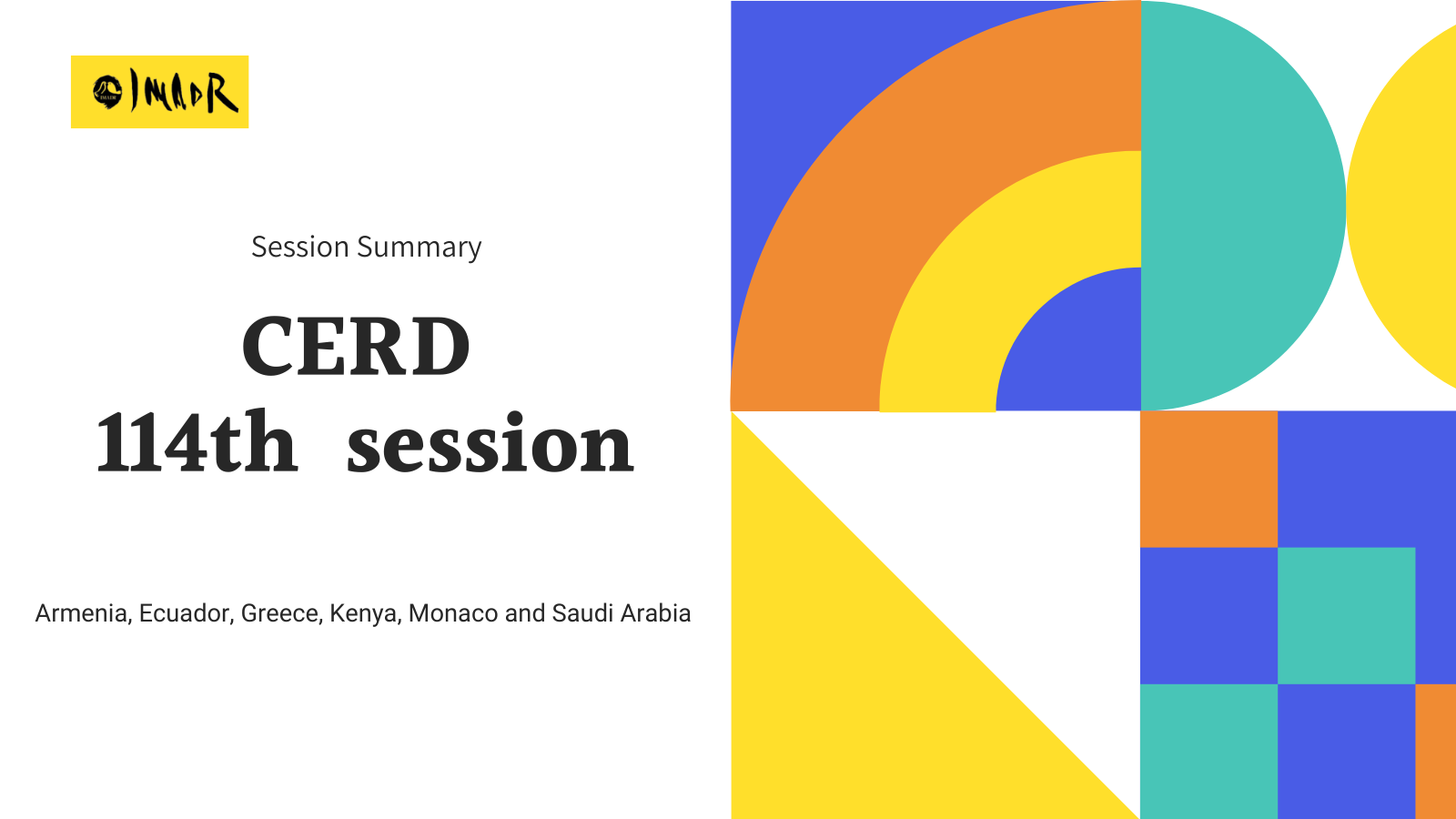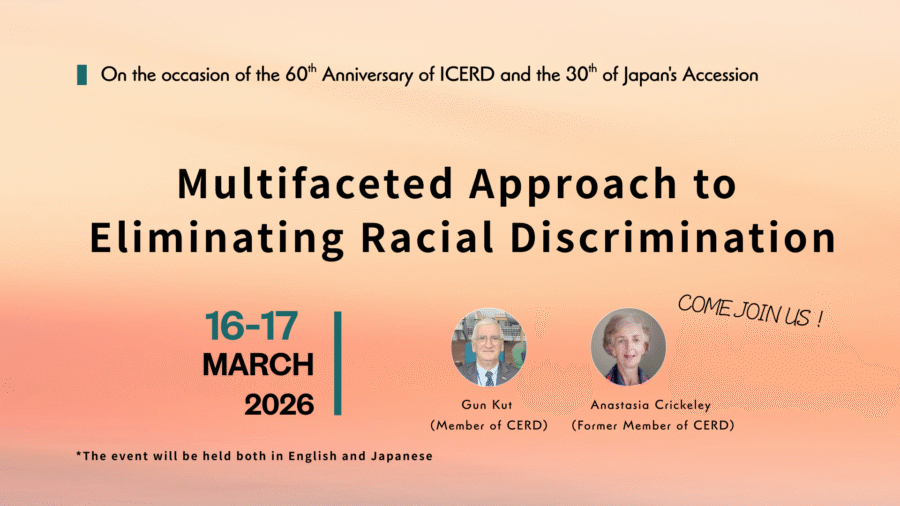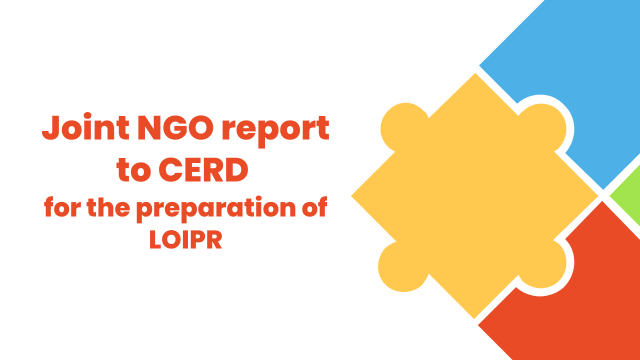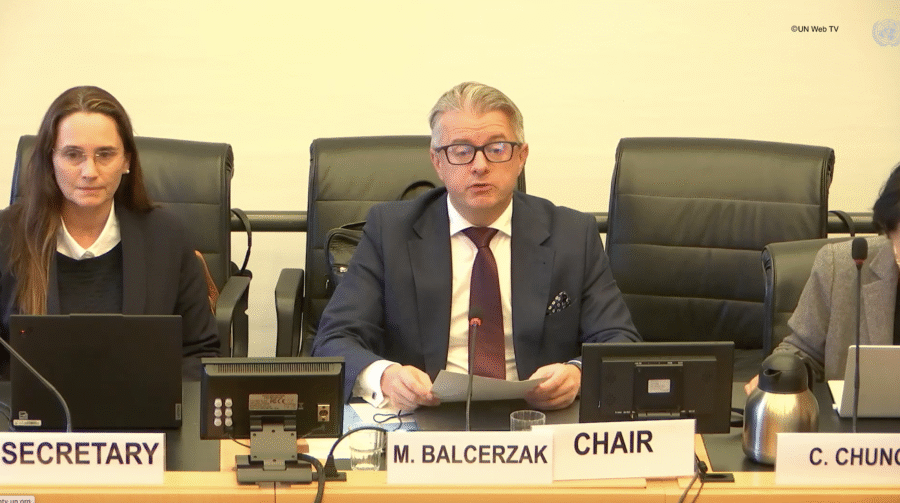CERD 114th session summary:Armenia, Ecuador, Greece, Kenya, Monaco and Saudi Arabia
December 16, 2024

From 25 November to 13 December 2024, the UN Committee on the Elimination of Racial Discrimination (CERD) held its 114th session.
In this session, the Committee reviewed and adopted concluding observations on the reports of Armenia, Ecuador, Greece, Kenya, Monaco and Saudi Arabia as well as the list of issues prior to reporting (LOIPR) on Côte d’Ivoire, Malawi, and Seychelles. The Committee further adopted the follow-up report for Portugal.
CERD also held joint in-person discussions with the Committee on Migrant Workers to develop a joint general comment/recommendation on addressing and eradicating xenophobia and its impact on the rights of migrants, their families and other non-citizens affected by racial discrimination in addition to global and regional in-person consultations held in Geneva, Bangkok, Panama, Tronto, Texas and Dakar during the inter-sessional period.
In its concluding session, the Committee adopted a Decision concerning the conflict between Israel and the State of Palestine under its Early Warning and Urgent Action procedure on 12 December 2024. It also endorsed 6 letters to the State parties assessed under this procedure. Furthermore, the Committee appointed Ms Chinsung Chung as the follow-up Rapporteur for the implementation of the recommendations made in the Ad Hoc Conciliation Commission’s report concerning the case of State of Palestine v. Israel.
Next year, the International Convention on the Elimination of All Forms of Racial Discrimination will mark its sixtieth anniversary.
Concluding observations and reports of the State parties and other stakeholders are available on the session’s webpage. Video archives of the public meetings can be accessed at UN Web TV. Summaries of the concluding session can be found here.
Armenia
Armenia had its interactive dialogue with the Committee on 2 December and 3 December 2024, and the Committee concluded its consideration of the combined 12th to 14th periodic reports of the States. The Committee commended the State party’s national human rights strategy while it asked questions concerning progress made for the adoption of anti-discrimination legislation and access to education for minority groups such as the Yezidi.
In its concluding observations, among other things, the Committee pointed out that child marriage remains frequent and the unregistered marriage rate is especially high in the Yezidi community. Against this backdrop, the Committee recommended that the State party strengthen its efforts and take all necessary steps for the prevention of all early marriage instances.
The Committee issued recommendations on the following topics:
- Status of the Convention in the domestic legal order and anti-discrimination legislation(*Follow-up)
- Organizations that promote racial hatred and racist propaganda
- Hate crime and hate speech legislation (*Follow-up)
- Reporting of cases of racial discrimination and prosecution of perpetrators
- Freedom of expression by minority groups
- Enjoyment of the right to education by ethnic minorities
- Enjoyment of the right to property by ethnic minorities (*Follow-up)
- Non-refoulement and non-penalization
- Situation of refugees and asylum-seekers
- Stateless persons
- Participation in public life
- Child marriage
- Missing persons
Ecuador
On 26 and 27 November 2024, the Committee held its interactive dialogue with the State delegation of Ecuador and adopted its consideration of the 25th periodic report. While the Committee welcomed the steps made by Ecuador to guarantee the rights of people of African descent, it raised questions about the treatment of Indigenous Peoples during the June 2022 protests and the situation of human rights defenders.
In its concluding observations, the Committee expressed its concerns about, among other things, the lack of disaggregated data to fully assess the rights and living conditions of historically marginalised groups. Additionally, it observed reports of technical and institutional weaknesses affecting the self-identification and participation of Indigenous Peoples, people of African descent, and Montubio people by reducing the quality and representativeness of the data. The Committee urged the State party to review self-identification categories in consultation with Indigenous Peoples, people of African descent, Montubio people, and civil society organisations in order to ensure accurate and inclusive statistics that enable effective public policies.
The Committee issued recommendations on the following topics:
- Statistics
- Legal framework for combating racial discrimination
- National Council for the Equality of Peoples and Nationalities
- Hate crimes and racial discrimination
- State of Emergency
- Structural discrimination against Peoples and Nationalities
- Right to free, prior and informed consultation and consent
- Impact of extractive projects and other business activities
- Political participation
- Right to participate in public life
- Right to work
- Right to education
- Indigenous languages
- Situation of migrants
- Access to justice (*Follow-up)
- Racial profiling and the use of force by law enforcement officials (*Follow-up)
- Human rights defenders
- Combating racial prejudices and stereotypes
Greece
The interactive dialogue took place on 3 and 4 December 2024, and the Committee concluded considering the combined 23rd and 24th periodic report of Greece. Despite commending the State party’s guide on reporting hate crimes, the Committee questioned the police’s alleged excessive use of force against minorities and the Hellenic Coast Guard’s violations of the rights of asylum seekers.
In its concluding observations, among other things, the Committee underscored its concerns about widespread hate speech and hate crimes against Roma and non-citizens while these cases were underreported because of the lack of trust by victims in law enforcement agencies, fear of reprisals, lack of awareness about complaint mechanisms, and the normalisation of hate crimes among vulnerable groups. The Committee also emphasised that prosecutors and courts inconsistently recognised racist motives and conviction rates for hate crimes were low. Against this backdrop, the Committee called upon the State party to take steps to encourage reporting of cases on hate speech and hate crimes, ensure accessible and safe reporting mechanisms, and enhance training for justice officials, such as prosecutors, police and judges about identifying, registering and addressing racial discrimination and hate crimes.
The Committee issued recommendations on the following topics:
- Statistics
- Situation of minorities
- Convention in the domestic legal order
- Legislative framework
- Policy framework
- Administration of justice
- Hate speech and hate crimes
- Racial profiling and racially motivated police violence
- Civic space
- Situation of Roma
- Migrant workers (*Follow-up)
- Migrants, refugees and asylum-seekers(*Follow-up)
- Stateless persons
Kenya
On 4 and 5 December 2024, the Committee held an interactive dialogue with the state delegation of Kenya and concluded its consideration of the combined 8th and 9th periodic report. Whereas the Committee commended the State party’s legal aid initiatives for the promotion of access to justice, it raised concerns about Indigenous land rights and reported abuse of Kenyan migrant workers abroad.
In its concluding observations, the Committee indicated its concerns about the slow and limited progress in implementing reparations for historical injustices, especially violations of land rights of the Kipsogis and Talai communities. The Committee called upon Kenya to take all necessary measures for the full implementation of the rulings of regional courts as well as the country’s High Court in order to compensate various ethnic groups.
The Committee issued recommendations on the following topics:
- Statistics
- Convention in the domestic legal order
- Legal framework for combating racial discrimination
- National Human Rights Institution
- Acts of racial discrimination, racist hate speech and incitement to racial hatred
- Special measures
- Situation of Indigenous Peoples
- Land rights and land restitution
- Situation of refugees, asylum seekers, and stateless persons
- Persons with Albinism(*Follow-up)
- Trafficking in persons (*Follow-up)
- Counter-terrorism measures and racial profiling
- Access to justice (*Follow-up)
- Combating racist prejudice and stereotypes
Monaco
Monaco had an interactive dialogue with the Committee on 28 and 29 November 2024, and the Committee concluded considering the combined 17th to 19th periodic report. Despite welcoming the State party’s efforts to strengthen anti-discrimination legislation, the Committee raised questions concerning racial profiling and acquiring Monegasque nationality.
In its concluding observations, the Committee expressed concerns about the lack of a definition of racial discrimination fully in line with the Convention. The Committee recommended that the State party adopt comprehensive anti-discrimination legislation with a clear definition of racial discrimination, including direct, indirect, multiple and intersecting forms of discrimination, encompassing all areas of law in both the public and private spheres.
The Committee issued recommendations on the following topics:
- Statistics
- Application of the Convention in the domestic legal order
- Legislation and public policies against racial discrimination
- Institutional framework
- Application of Article 4 of the Convention
- Racist hate speech and hate crime
- Situation of non-citizens
- Access to nationality
- Combating trafficking in persons(*Follow-up)
- Legal framework for asylum
- Complaints of racial discrimination and access to justice(*Follow-up)
- Human rights education to combat prejudice and intolerance
Saudi Arabia
The interactive dialogue took place on 27 and 28 November, and the Committee concluded considering the combined 10th and 11th periodic reports of Saudi Arabia. While the Committee welcomed the State party’s efforts to protect domestic workers, it raised questions regarding the death penalty, which applied disproportionately to minorities, and HIV testing which was discriminatory to migrant workers.
In its concluding observations, the Committee indicated concerns that persons belonging to the Shia ethnoreligious minority community, migrant workers and domestic workers, including women, are overrepresented in the criminal justice system and exposed to arbitrary detention, torture and ill-treatment with the lack of fair trial and coerced confessions, especially in instances of the death penalty. Against this backdrop, the Committee urged the State party to impose a moratorium on the death penalty with a view to abolishing it. Moreover, the Committee requested the State party to reform the justice system in order to limit the death penalty to the most serious crimes, ensure fair trials, and prohibit the use of evidence gained through duress or torture.
The Committee issued recommendations on the following topics:
- Statistics
- Reservations to the Convention
- Convention in the domestic legal order
- National Human Rights Institution
- Special measures to address inequalities
- Prohibition of racial discrimination
- Complaints of racial discrimination(*Follow-up)
- Hate speech and hate crimes(*Follow-up)
- Racial profiling and use of lethal force
- Algorithmic profiling and racial discrimination
- Criminal justice system and death penalty
- Rights to freedom of opinion and expression and to freedom of association
- Right to freedom of thought, conscience and religion
- Nationality rights
- Women belonging to ethnic and ethnoreligious minority groups
- Situation of the Shia ethnoreligious minority group
- Situation of the Howeitat Bedouin tribe
- Migrant workers(*Follow-up)
- Domestic workers
- Access to justice for migrant workers
- Stateless persons
- Migrants, asylum seekers and refugees
- Training, education and other measures to combat prejudice and intolerance
Summaries of concluding observations can be found here.
*The next session is going to take place from 22 April to 9 May 2025 to review the reports of Gabon, Guatemala, Kyrgyzstan, Mauritius, Republic of Korea and Ukraine.





